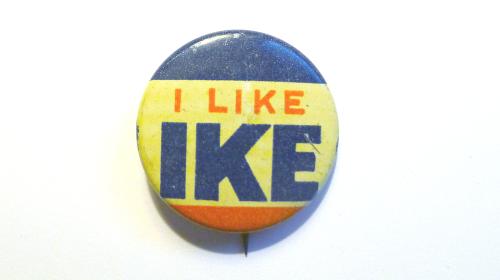
“I Like Ike” is one of the most well-known and catchiest political slogans of all time. According to a decision that was issued by a federal judge in Virginia a few days ago, however, the modern-day equivalent—saying that you "like" a political candidate by using Facebook's "like" feature—is not even worthy of the protections of the First Amendment. That decision is wrong, whether you like or dislike Facebook.
The court’s decision appears to be premised on its belief that pressing a button to say that you “like” something—in this case, a candidate running for election to be a city’s Sheriff— is not “substantive” enough to be protected by the First Amendment. In the court’s words: “[M]erely ‘liking’ a Facebook page is insufficient speech to merit constitutional protection . . . It is not the kind of substantive statement that has previously warranted constitutional protection. The Court will not attempt to infer the actual content of [the plaintiff’s] posts from one click of a button on [the candidate’s] Facebook page.”
It is hard to understand how revealing to the world that you “like” a particular political candidate does not reveal one’s views or express an opinion. It does exactly that. That many people today choose to convey what they like or which political candidates they support by “liking” a web page rather than by writing the actual words, “I like this web page” or “I like this candidate,” does not matter, either from a practical or a legal perspective. Whether you press a “like” button to express those thoughts or you press the buttons on a keyboard to write out those physical words, the end result is the same: you are telling the world about your personal beliefs and interests. That is exactly what the First Amendment protects, however that information is conveyed.
The court’s conclusion that pressing a button does not involve “enough speech” and that “liking” something is not a sufficiently “substantive statement” to warrant First Amendment protection is similarly wrong. First Amendment protection does not depend on how thoughtful, time-consuming, or “substantive” one’s comments might be, and the Supreme Court—including the members of the current Court—has consistently rejected efforts to limit the First Amendment to speech that is “valuable.” Nor does it matter whether the message in one’s speech is easily decipherable or if “liking” something really means that you truly “like” something, in the traditional meaning of the word “like.” As the Supreme Court vividly explained in one case, the First Amendment protects speech even if the speech does not convey a “particularized message,” because otherwise, its “protection would never reach the unquestionably shielded painting of Jackson Pollock, music of Arnold Schonberg, or Jabberwocky verse of Lewis Carroll.”
But as wrong as the rationale of this decision is, perhaps the most troubling aspect of the decision is that it illustrates how difficult it still is for judges (and the public) to understand that just because the Internet and social media tools are new, that does not mean they should be treated differently from more traditional forms of communication. Over fifteen years ago, when use of the Internet really was new, the ACLU went to court to establish the principle that speech on the Internet deserves the same First Amendment protections as traditional forms of speech. In its landmark ACLU v. Reno decision, the United States Supreme Court agreed, unanimously (and wisely) holding that Internet speech is entitled to the exact same protections as all other speech.
That is still the law, but as this recent decision shows, we need to keep fighting to ensure that all new forms of speech, including ones most of us haven’t even imagined yet, are protected by the First Amendment, no matter how “different” they may seem.
